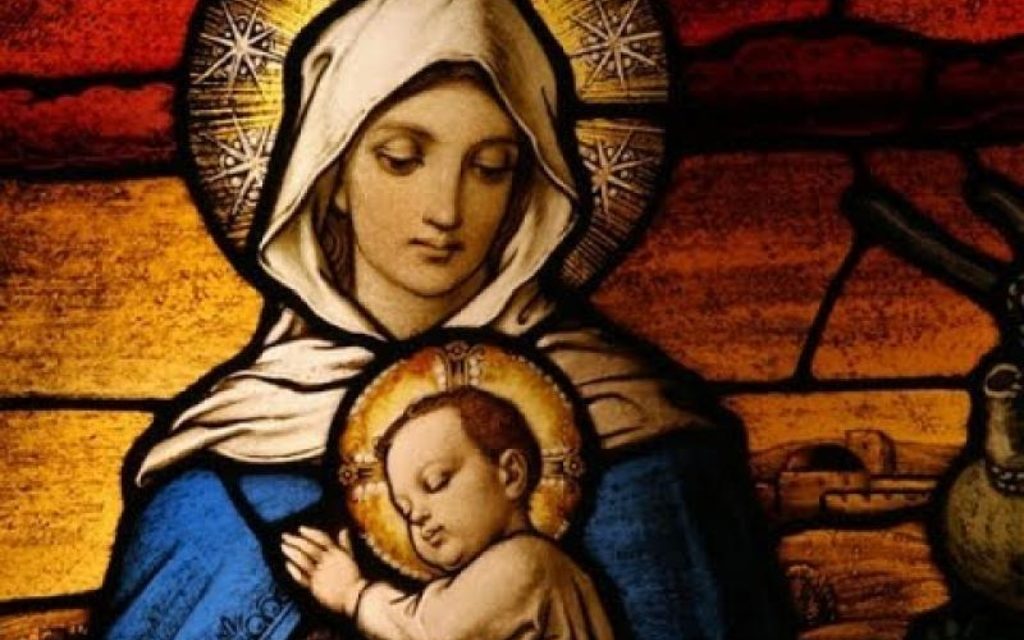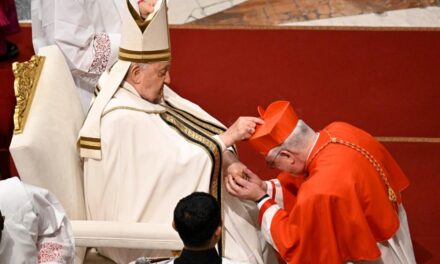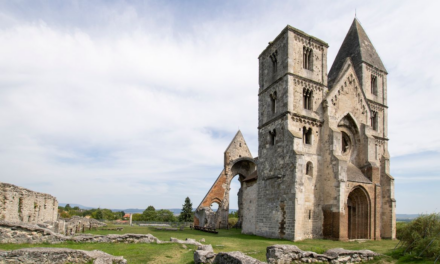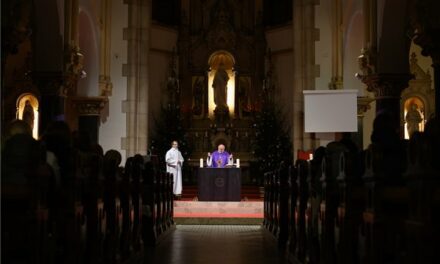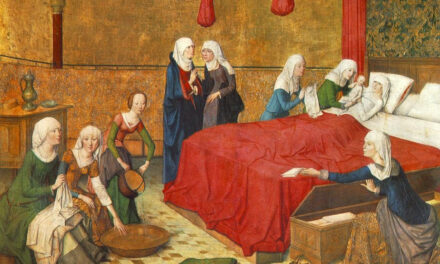Before the death of Saint Stephen, he offered his crown and his country to the protection of Mary. Since her offering, we have also honored the Virgin Mary as the Mother of the Hungarians. The special holiday XIII. Pope Leo authorized it for our people.
The offer of the country took place in 1038, on the feast of the Blessed Virgin Mary. In the legend from Bishop Hartvik, we can read about it like this:
"Finally, by the mercy of God, worthy of a hundredfold reward, a fever took [the king] off his feet, and when there was no longer any doubt that the day of his death was soon, he summoned the bishops and the great men of his palace who glorified the name of Christ; he first discussed with them who should be chosen as king in his place. Then he admonished them in a fatherly manner to preserve the true faith which they had received; to love the truth, to like the chains of heavenly love, to practice love, to care about humility, but above all to grow in the tender plantation of Christianity. After these words, raising his hands and eyes to the stars, he exclaimed: »Queen of Heaven, illustrious restorer of this world, in my last pleas I entrust the holy church with the bishops and priests, the country with the people and the lords to your protection; Saying my last goodbye to them, I commend my soul into your hands. (Compare Psalm 31:6)"
The relationship between the Virgin and the Hungarian people could not be obscured by the internal flickerings that followed the death of King Stephen. During the reign of King Saint László, the veneration of the Magyars flourished again. Later, the Hungarians also fought against the Tatars and the Turks, calling out the names of Jesus and Mary. At the end of the 17th century, Lipót I repeated the offer of the country to Mária as a sign of his gratitude for the liberation from the Turks.
Rejoice, Mother of God, in the depths of your heart. You are happy, Hungary, that you celebrate the holy day of the Virgin Mary. Let the sky, the earth and the sea rejoice! (The Magnificat antiphon of the holiday from the First Evening Praise)
At the request of Cardinal Kolos Vaszary, Primate, the Holy See also recognized the national character of the Marian veneration: XIII. Leo sanctified an unbroken tradition of about nine centuries when in 1896 he authorized a special holiday for the second Sunday of October. Saint Pius X placed it on October 8.
On October 8, 1980, St. II. Pope János Pál consecrated a chapel in honor of Our Lady of the Hungarians in the sub-church of St. Peter's Basilica.
The specific iconography of the Patrona Hungariae developed from the representation of the woman clothed in the sun: instead of the crown with twelve stars, the Hungarian Holy Crown was placed on the Virgin's head, the apple of the country is in the hand of the baby Jesus sitting on her arm, and the scepter of the country is in the other hand of Mary.
We Hungarians are the first, but not the only ones, to honor the Blessed Virgin Mary as our national patron.
In Bavaria in 1620, after the Battle of the White Mountain, they began to be respected as national patrons, France XIII. King Louis in 1638, Austria III. Ferdinand recommended it to Mária in 1647. In 1656, King Kazmér János declared Our Lady Queen of Poland. In the course of the following centuries, first Mexico, then all of Latin America, Catalonia and South Asia were placed under the protection of the Virgin Mary. The English bishops offered England in 1893, which has been considered Mary's dowry ever since.
Our God, through the intercession of the Blessed Virgin Mary, you have showered our people with countless benefits. By order of Saint Stephen, our first king, we honor her on earth as our Lady and patron. Kindly grant that one day we will rejoice with him forever in heaven! Through our Lord Jesus Christ, your Son, who lives and reigns with you in unity with the Holy Spirit, God forever and ever. Amen.
Forrás
István Diós: The lives of the saints
Sándor Bálint: Festive calendar II.
The liturgy of the prayer hours
Photo: Jelesnapok.hu, Katolikus.network.hu

